
Q: Hello, Dr. Shree Varma, welcome. Could you tell us a little bit about your background?
Happy to meet you, Marion. I'm from the Durango tradition and my birth village is on the border of Tamil Nadu and the Kerala Kanyakumari district in South India. The family has treated chronic ailments with Ayurveda, yoga and varma for nine generations, but I'm the first university graduate in Ayurvedic medicine in the family. My father believed that while Ayurveda has been proven over centuries, he wanted me to be qualified. So he sent me to Chennai to Dr. MGR Medical University to do a Bachelor of Ayurveda Medicine and Surgery. From that degree, I have the title "acharya."
We teach preventive healthcare for a disease-free life, maintaining positive health in a healthy person, and curing diseases with the help of Ayurveda, yoga, and varma.
Q: What is the relationship between yoga and Ayurveda?
Ayurveda is not a medical science alone. We say it is shraddhayu - if someone has the desire to live for 100 years without disease, Ayurveda will teach that philosophy and the associated principles, and it has three different dimensions.
The first is prevention: the guidelines of dinacharya, the daily regimen, and ritucharya, the seasonal regimen. It speaks about the principles of life, how to start the day, how to design your day. It prescribes a healthy life. You get up one and a half hours before sunrise and start your day with breathing practices. And it speaks about meditation, and physical exercise. So the first priority in the morning is yoga to ensure a healthy life of 100 years.
What is the definition of health in Ayurveda? A blissful state of body, mind, and soul.
This story is from the October 2023 edition of Heartfulness eMagazine.
Start your 7-day Magzter GOLD free trial to access thousands of curated premium stories, and 9,000+ magazines and newspapers.
Already a subscriber ? Sign In
This story is from the October 2023 edition of Heartfulness eMagazine.
Start your 7-day Magzter GOLD free trial to access thousands of curated premium stories, and 9,000+ magazines and newspapers.
Already a subscriber? Sign In
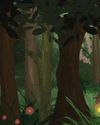
A Flower from THE HEAVENS
November 14 is Children's Day. This year, SARA BUBBER brings to you a world of forests, magical flowers, festivals, and some animals you may have never seen.

Meeting Phenomenal Women
The author, CHITRA BANERJEE DIVAKARUNI, is interviewed here by TARA KHANDELWAL and MICHELLE D'COSTA about her books on mythology, like The Palace of Illusions, which is a retelling of the Mahabharata from Draupadi's point of view, and The Forest of Enchantments, which is a retelling of the Ramayana, from the eyes of Sita. And there's The Last Queen, which is about Rani Jindan's life.
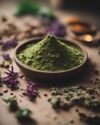
HERBAL TOOTH POWDERS: Rediscovering Ayurveda's Natural Secrets
SRAVAN BANDA presents a natural herbal tooth powder, offering a holistic approach to oral hygiene, harnessing the power of medicinal herbs.

The Dance of Light and Shadow Lessons from the Dolomites
ALAIN DESVIGNE explores the Dolomites, listed as a UNESCO World Heritage Site in 2009.
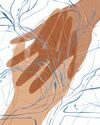
FINDING OUR WAY
A Polynesian Explorer's Journey of Discovery
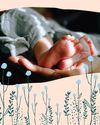
The First Imprint: Understanding PTSD
CHRISTIANNA DEICHMANN is the Director of Education at the Association for Pre and Perinatal Psychology and Health (APPPAH), where she educates both professionals and parents on fostering the most nurturing environments for welcoming new life into the world.
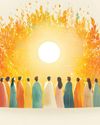
The Tipping Point
In this final conversation of the series, J. FREDERICK ARMENT continues to talk with CHRISTINE JONES about promoting peace in the world.
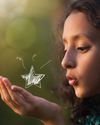
UNLOCK YOUR POTENTIAL
Take The Brighter Minds Path To Cognitive Development

The Intrinsic Goodness of the Heart
DAAJI shares some thoughts on heartfelt acceptance and all it has to offer. He says, \"It is the heart's intrinsic goodness that allows us to accept everything as part of us.
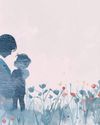
How Does Fear Affect Our Roles as Mothers? - Neelam Shivhare explores some of the great ancient texts of India on motherhood, compares the behavior of Kaikayi and Yashoda
Neelam Shivhare explores some of the great ancient texts of India on motherhood, compares the behavior of Kaikayi and Yashoda, and realizes the importance of removing fear from our hearts in order to nurture our children.For young women like myself, who are future mothers, I trust we are on the path of becoming selfaware and brutally honest with ourselves. We are creative beings, never forgetting the gifts with which we have been bestowed— the love and tenderness, natural instincts, and intuition to feel the right path. It all lies in the mysterious meanderings of the heart. Are we really listening to our hearts, or confusing the bombarding information on social media with reality?